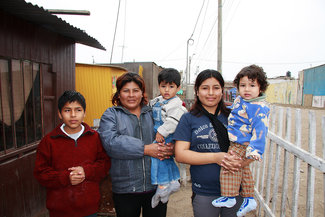

Displaying 81 - 90 of 346
In this article, the authors present child abuse and neglect data available in Brazilian public health system platform and in a national childline reporting channel (Dial 100) from 2011-2017.
The study from Chile, Lithuania and Norway explores how social workers define family and more specific the position of extended families within child welfare and thus indicate contextual differences and similarities.
Within the unique and understudied context of a developing economy facing the strain of an international pandemic, this study sought to expand our theoretical understanding of the individual and socio-ecological predictors of whether child protective services professionals engage in resilient behaviors.
Este webinar presentará una discusión de prácticas prometedoras entre los colegas en terreno en la región de América Latina.
The purpose of this study is to examine the association between parental migration and adolescents’ styles of close relationships with parents, friends and romantic partners.
This webinar builds up on the results of the research More Autonomy, More Rights (2020) Coordinated by CSO Doncel, in the representation of the Latin American Network of Care Leavers and supported by UNICEF LACRO and Hope and Homes for Children.
The current study aims to evaluate relationships between child victimization and child resilience with a particular focus on caregiver and family promotive factors.
In this How We Care series webinar, Family for Every Child members CPTCSA (Philippines), Paicabi (Chile) and Butterflies (India) come together to discuss the work they are doing to address child sexual abuse in their contexts.
The purpose of this article is to discuss whether adoption, in the form in which it is systematized in Brazil, by the National Adoption Register, may be the solution to the serious problem of child and adolescent in risky situations of care, especially those living in the state of Rio de Janeiro.
This webinar includes presentations from panelists in Latin America discussing early childhood programming in the region, particularly in light of the COVID-19 pandemic.

